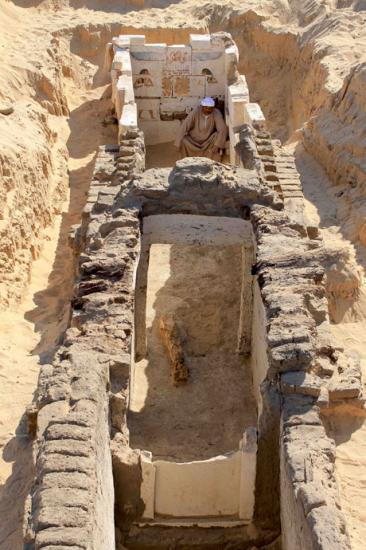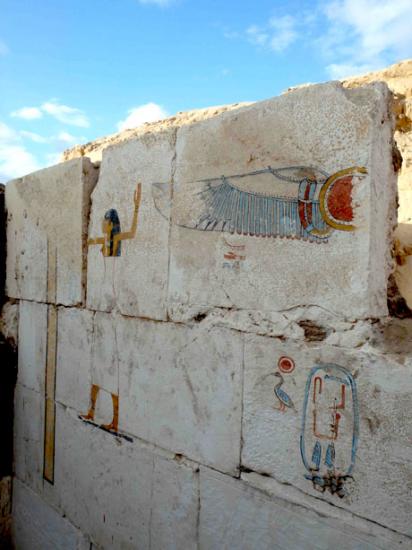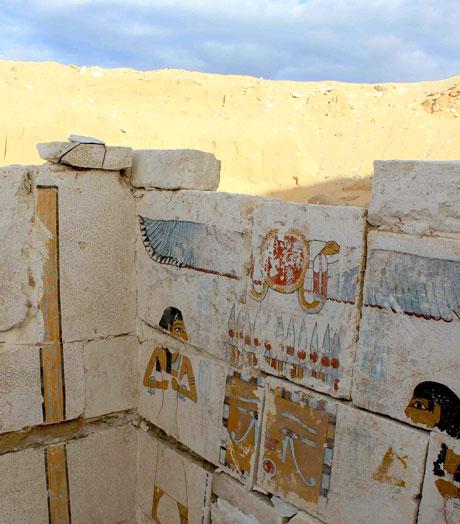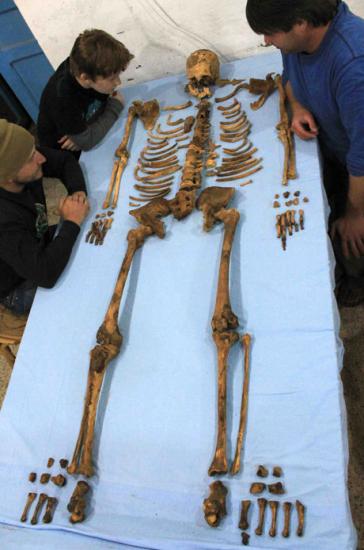Source - http://www.france24.com/en/20140115-archaeology-senebkay-pharaoh-egypt/
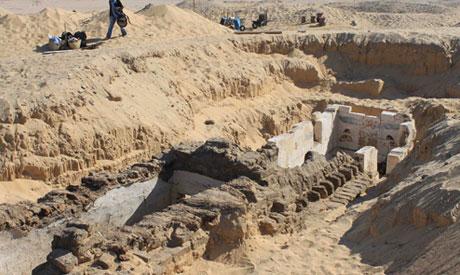
© AFP
Archaeologists in Egypt believe they have discovered the remains of King Senebkay, a previously unknown pharaoh who reigned more than 3,600 years ago.
The skeleton of King Senebkay was uncovered at South Abydos in Sohag province, about 500 km (300 miles) south of Cairo, by a University of Pennsylvania expedition working with the government, the Egyptian antiquities ministry said.
Never before heard of in ancient Egyptian history, King Senebkay's name was found inscribed in hieroglyphics written inside a royal cartouche - an oval with a horizontal line at one end signalling a royal name, the ministry said in a statement.
Photographs released with the statement showed what appeared to be a heavily damaged sarcophagus in a burial chamber with no roof. Its stone walls were decorated with painted images.
The photos also showed the pharaoh’s skeleton laid out on a white sheet. "He was originally mummified but his body was pulled apart by ancient tomb robbers," said the caption.
Archaeologists found canopic vases, traditionally used to preserve body organs, but no grave goods.
Antique robbery
"No funerary furniture was found in the tomb, confirming it had been robbed in the ancient pharaonic ages," the statement said, quoting Ali al-Asfar, an antiquities ministry official.
Joseph Wegner, head of the expedition, added: "The modesty of the size of the tomb points to the decline of economic conditions in this period".
The statement dates King Senebkay's rule to 1650 BC during a time known as the second intermediate period when central authority collapsed and small kingdoms sprang up between the end of the Middle Kingdom era and the start of the New Kingdom era.
The discovery provides new evidence that at least part of Egypt may have escaped the rule of the Hyksos, invaders from what is now Syria, who dominated the Nile Delta between the 18th and 15th centuries BC, the officials said.
"The royal family in Abydos, which may have been founded by Senebkay, is of Egyptian origin and did not submit to the Hyksos's rule," they said.
The same US team announced last week that it had identified another pharaoh, whose tomb they had also unearthed at Abydos last year.
Pharaoh Sobekhotep I is believed to have been the founder of the 13th dynasty 3,800 years ago. His identity was established after the team found fragments of a slab inscribed with his name.
Photos Egypt Ministry of State for Antiquities © :
